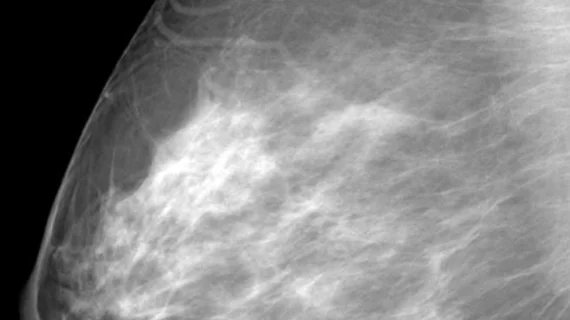How does breast density affect AI accuracy?
Artificial intelligence applications have shown great promise in improving early detection of breast cancer, but many algorithms are hindered by a lack of training on diverse datasets. New research presented at the annual meeting of the Radiological Society of North America delves into how different patient characteristics affect AI’s performance.
Prior research has suggested that factors like age, race and ethnicity can influence algorithms’ accuracy, but according to this new study, there is one characteristic that throws both algorithms and radiologists off—breast density.
A group of experts from Duke University Medical Center arrived at this conclusion after running nearly 400 digital breast tomosynthesis examinations from their institution through an FDA approved AI algorithm for breast cancer detection. The algorithm retrospectively generated case scores for each exam, with scores over 49 having a high likelihood of malignancy, according to the AI vendor. The team compared the algorithm’s interpretations alongside patients’ final diagnoses, age, race, ethnicity and breast density status to analyze how differing characteristics impacted its performance.
Overall, the algorithm yielded a false negative rate of 11%. However, a substantial portion of the false negative reads occurred in women with dense breast tissue, while race and ethnicity did not show a strong relationship. Heterogeneously and extremely dense breasts accounted for 62% of the false negatives—a stat that remained consistent even when adjusting for age, race and ethnicity.
“Like radiologists, the performance of an FDA-approved AI algorithm for breast cancer detection is influenced by breast density,” Derek Nguyen, MD, a breast radiologist at Duke University Medical Center, and colleagues noted. “It is essential to train these algorithms on diverse datasets to enhance their diagnostic accuracy regardless of breast density.”
Breast cancer screenings represent a significant workload for radiologists, which is why AI assistance has been an especially enticing prospect for both providers and vendors. However, nearly half of all women have dense breasts. Therefore, it is imperative that AI algorithms are trained on datasets that enable them to overcome the masking effects of dense tissue before they can be reliably deployed into clinical practice.

